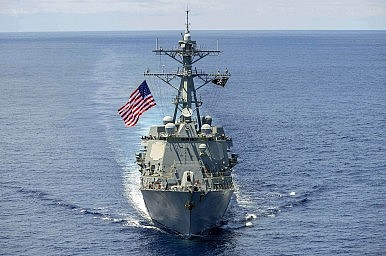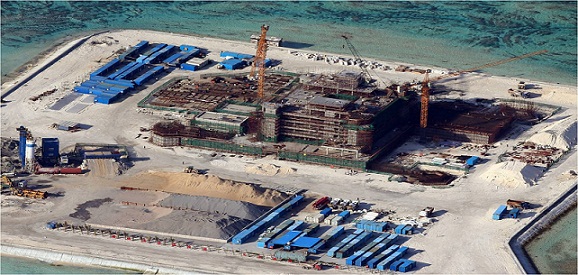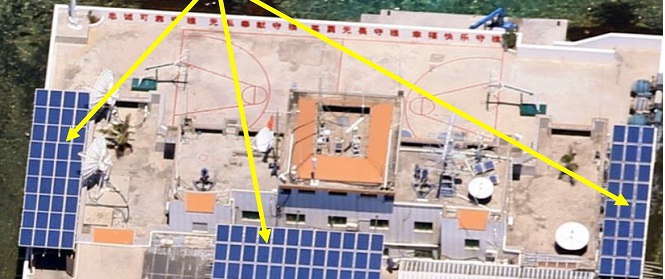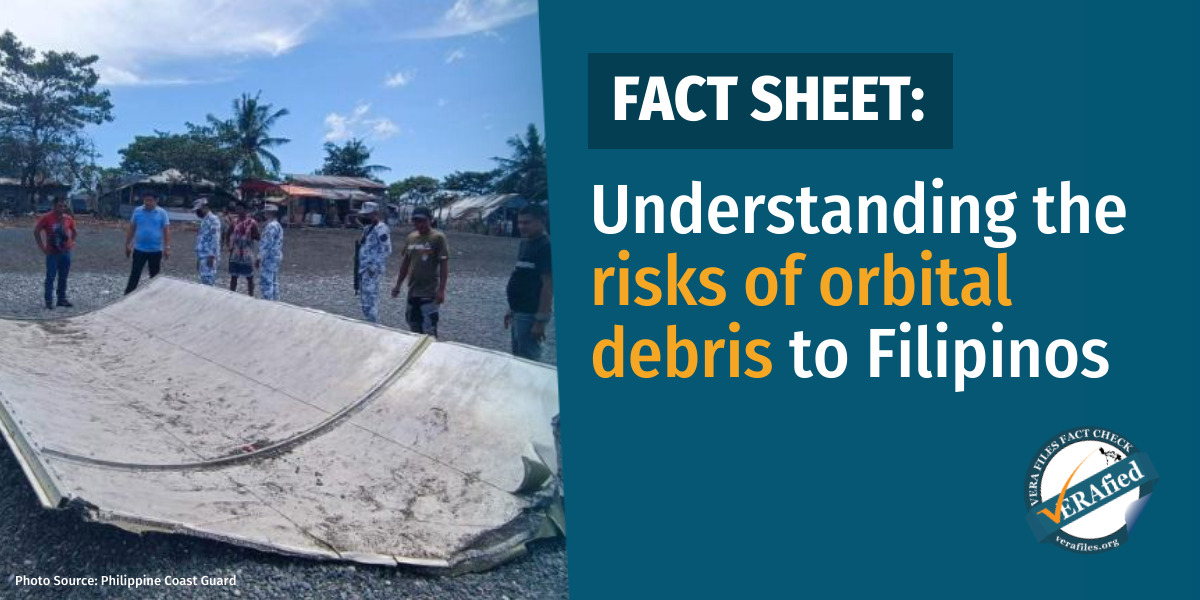
By Ellen T. Tordesillas
The Navy Times, the official publication of the United States Navy, reported last week that “The Navy is preparing to send a surface ship inside the 12-nautical-mile territorial limit China claims for its man-made island chain.” It said that the operation “could take place within days but awaits final approval from the Obama administration.”
Financial Times reported Thursday that a senior Chinese naval officer warned the US that the People’s Liberation Army would deliver a “head-on blow” to any foreign forces “violating”
It didn’t say which of the eight islands that China occupies in the disputed waters of the South China Sea the U.S. Navy is testing the 12-nautical mile limit to underscore freedom of navigation in the disputed waters.
It is important to know where the U.S. ship would be going because of the eight features that China occupies and have expanded into islands, four are rocks and are entitled to 12 nautical mile territorial sea. They are Fiery Cross, Johnson Reef, Cuarteron Reef and Scarborough Shoal just off Zambales. The United Nations Convention on the Law of the Sea or UNCLOS states that a coastal state exercises sovereignty over its territorial sea although ships of all States enjoy the right of innocent passage through the territorial sea of other countries.
The four other features located in Spratlys which are termed Low Tide Elevations or LTEs, those not visible above water at high tide, and are not entitled to the 12-nautical mile territorial sea are Mischief Reef, Kennan Reef, Gaven Reef and Subi Reef.
The United States planned military action to venture into China’s claimed territorial sea is a major shift from its policy articulated by Admiral Scott Harbison Swift, commander of the United States Pacific Fleet, in an interview with Manila reporters last July.
Swift said that while they operate regularly in the 200-nautical mile Exclusive Economic Zone of coastal states because the U.S. stand is that international law allows them that, they don’t do that in other countries’ territorial waters. “We don’t operate within the territorial seas of those countries. We honor those territorial claims just as a matter of international law,” Swift said.
When asked about the artificial islands created by China through reclamation, Swift also said he has to defer to lawyers because “There are many definitions what islands are.” But he said their basis is “the original land that it occurred. If it’s a rock under the definition of UNCLOS, it will still be a rock.”
Last week, in a maritime conference in Sydney, Swift took a hard line stand: “Some nations continue to impose superfluous warnings and restrictions on freedom of the seas in their exclusive economic zones and claim territorial water rights that are inconsistent with (the United Nations Convention on the Law of the Sea). This trend is particularly egregious in contested waters.”
There has been no reported incident, however, of any ship that was blocked by China in South China Sea where some $5.3 trillion worth of trade pass through every year. Last September, P8-A Poseidon, America’s most advanced surveillance and submarine-hunting aircraft, was shooed away by the Chinese Navy when it tried to fly over the islands occupied by China. Innocent passage allowed under UNCLOS does not include acts aimed at collecting information to the prejudice of the defence or security of the coastal State.
The Navy Times article quoted David Shear, assistant secretary of defense for Asia-Pacific security, telling the Senate Armed Services Committee that the U.S. Navy hadn’t steamed or flown within 12 nautical miles of the disputed islands since 2012. China started the reclamation and construction of installations in its occupied features in Spratlys after the Philippines filed a suit before the United Nations Arbitral Tribunal in January 2013 to invalidate China’s 9-dashed line map.

The Navy Times article pointed out a possible complication in the U.S. Navy’s plan to sail into China’s occupied islands in Spratlys: “Bryan Clark, a retired submarine officer and analyst with the Center for Strategic and Budgetary Assessments, said that passage through territorial waters is a routine Navy operation typically used to build a legal case under international law for freedom of navigation in international waters, and right of innocent passage within territorial waters.
“Innocent passage, the right of a state to pass through the territorial waters of another, is usually conducted with little fanfare. But what makes the planned passage through China’s newly claimed territorial waters significant is that the administration had previously prohibited the Navy from doing it in the Spratly Islands, Clark said.
“’If you act like they have a legal 12-mile limit, even though the U.S. has said it doesn’t recognize it, you are tacitly acknowledging those claims as legitimate,’ Clark said, adding that even if the claims were legitimate, the U.S. would have the right to pass through under the right of innocent passage.”
The Navy Times said the Chinese government claimed the same right when its Navy’s ships passed within 12 nautical miles of the U.S.-held Aleutian Islands off Alaska In September, after a joint exercise with the Russian military.
The Philippines, which has conflicting claims on Spratlys with China (other claimants are Vietnam, Malaysia, Brunei, and Taiwan), welcomed the U.S. Navy’s plan to venture inside the 12-nautical mile zone of islands occupied by China.
Lawyer Harry Roque, who specializes in international law, said “It is regrettable the Philippine government has endorsed the recent U.S provocations. It should be reminded that this support may have adverse effects on our arbitration under the principle that no one should come to court with unclean hands.”
Roque, who is aiming for a congressional seat via the partylist, Kabayan, said the U.S. plan does not contribute to peace and stability in the region. “While China cannot claim that any of its artificial islands can generate any maritime zones since all of them are low tide elevations, the act of the US in sailing near these islands only exacerbates an already tense situation and amounts to provocation. The West Philippine Sea dispute should be resolved under the rule of law and all stakeholders must uphold international law especially the prohibition on the use and the threat on the use of force.”
In supporting the U.S. game of brinkmanship with China, the Aquino government should be reminded of an African proverb, “When (two) elephants fight, it is the grass that suffers.”



